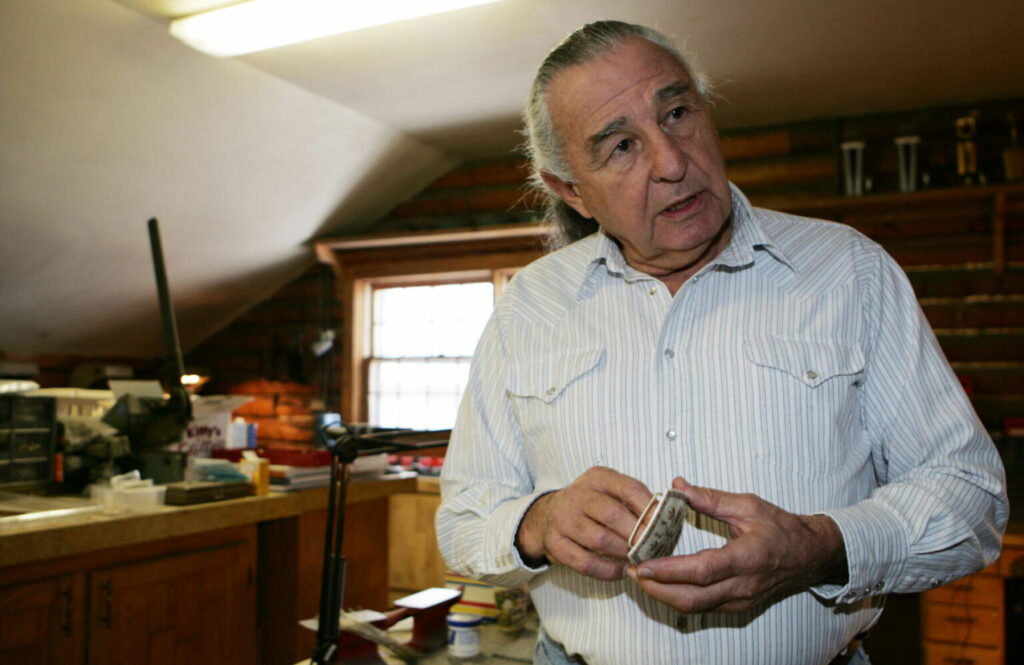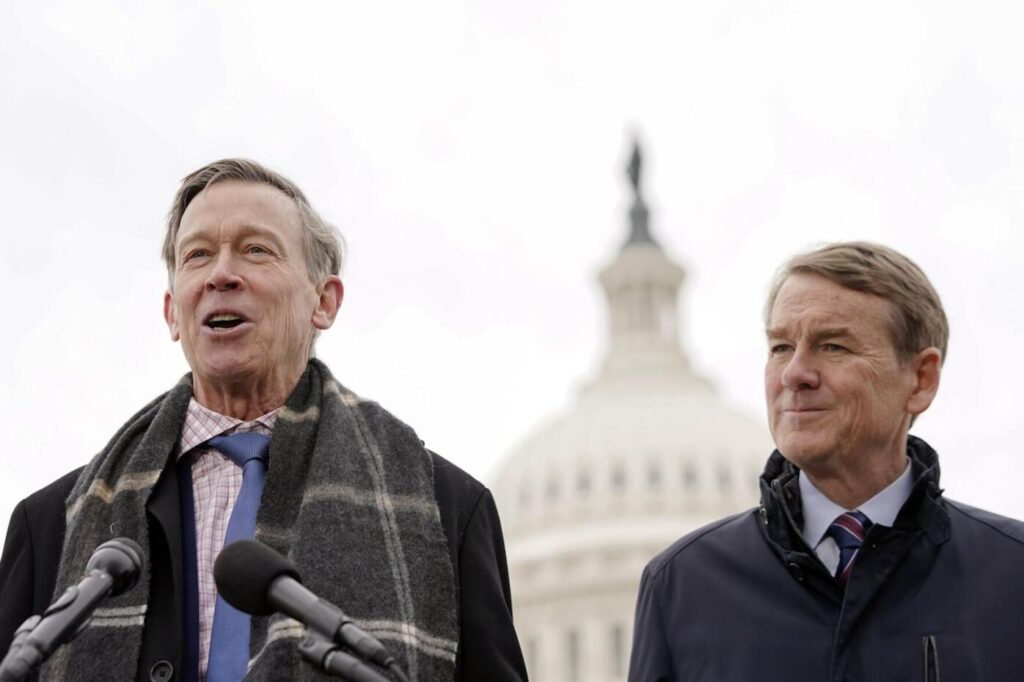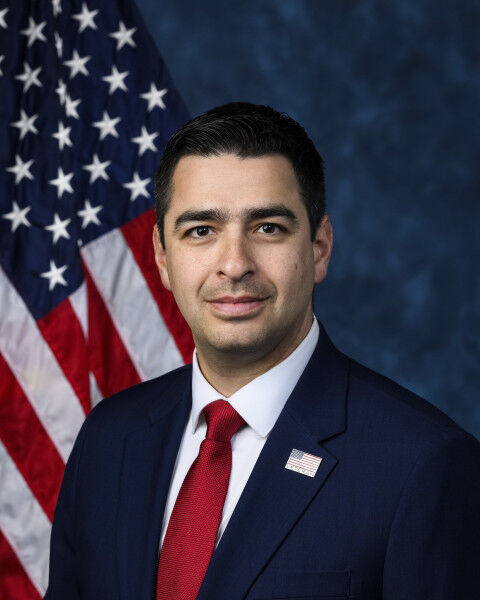YESTERYEAR: Supreme Court affirms Legislature’s gambling acts, Wadham’s wins GOP by acclamation
Twenty Years Ago This Week in The Colorado Statesman … The Colorado Supreme Court had been mulling over the Legislature’s gambling restrictions on elected officials, passed six years earlier, and they had reached their conclusion.
The Supreme Court, in a unanimous decision, declared constitutional a law prohibiting elected, municipal officials of Central City, Black Hawk and Cripple Creek as well as county commissioners of Teller and Gilpin Counties from holding a direct or indirect interest in a limited gaming license.
The Legislature had formulated the idea and gotten Gov. Roy Romer to sign off on it in May 1991 as part of the Colorado Limited Gaming Act, which had been spawned by the voters’ desire to extend and expand gambling in the Colorado gaming towns under Amendment 50. The Legislature’s measure then winded its way through the judiciary, taking over five-and-a-half years to reach the Colorado Supreme Court.
In the 1997 issue of The Statesman, the late Jerry Kopel, a former long-time Democratic state legislator from Park Hill, wrote an article explaining that the voters’ approval of Amendment 50 in 1990 had prompted those in the legislative branch to contemplate some more regulations as well, in the form of the Gaming Act – and their (his) contemplations were found to be constitutional. The gaming issue was one with which he was intimately familiar, having been in office at the time of the passage of the measure. Two major bills of the same ilk were produced in 1991: HB 91-1316 authored by Rep. Ken Chlouber, R-Leadville, and SB 91-149 by Sen. Sally Hopper, R-Golden. Both bills prohibited local judges and all law enforcement officers from holding direct or indirect gaming license interests.
Kopel recalled a letter a Cripple Creek city councilman had written to him while Kopel was serving in office, which read, “All versions of the bill I have seen prevent the state gaming commission members from having an interest in gambling businesses. They aren’t even permitted to own property in the counties where limited gambling occurs. The same reasoning should be applied to local governments. Without it, we face certain and total corruption at the state level.”
HB 1316 stalled in the Senate while SB 149 percolated in the House, Kopel recollected. A standard ploy, much of HB 1316’s wording was mirrored in alternative bill SB 149, including bolstered language barring elected officials in addition to law enforcement and judges from holding gaming interests, as well as a prohibition on Central City, Black Hawk and Cripple Creek city managers and planning commission members from having any stakes in gaming licenses.
Fast forward to 1997 and walk back across the street to the judicial branch, and you would have found Colorado Supreme Court Justice Rebecca Kourlis, writing the court’s unanimous opinion and, in it, quoting remarks made by Kopel all those years prior.
“The act gives the Gaming Commission the authority to issue licenses. But that act also gives the elected officials in those municipalities the authority to pass on the facades that are going to be placed upon the buildings where the gaming is going on.
“If the city council refuses to issue an approval of a facade on the front of the building, no gaming can occur at that particular facility. As a result you have two kinds of licenses involved.”
Kourlis also quoted state Rep. Tim Foster, R-Grand Junction, who said that public officials responsible for directing law enforcement officers might be reluctant to order officers to enforce gaming laws.
“We conclude,” wrote Kourlis, “the state’s substantial interest in avoiding corruption and the appearance of corruption in both the gaming industry and the local government in Cripple Creek, Central City, and Black Hawk, outweighs the limited burden section 12-47/1-804(1) placed on public office, or on voter’s rights.”
… Ten Years Ago … One man seemed to have scared off any and all competition to lead the state’s elephants. Republican strategist Dick Wadhams emerged as the leading (and only) candidate for GOP state party chairman, having secured the support of key leaders after three other potential candidates bowed out of the race.
Wadhams, originally from Las Animas, said he ran because he believed he could help craft and deliver a “mainstream conservative Republican message” that would win back critical rural and suburban voters.
Wadhams said he wanted to redefine the role of the party’s leader as a more vocal spokesman, while also re-establishing the state party as a critical player in the age of 527 groups. In addition, he said he thought the party could do a better job highlighting its differences with Democrats.
“In terms of carrying the broad Republican message, the state chairman needs to be a little more public,” he said, “and that’s a role I would relish.”
Party leaders expressed hope that Wadhams would be the right man to rebuild the state party that had suffered from three years of division and defeat.
Not only did Wadhams command respect from all segments of the party because of his track record of winning elections in and out of Colorado, but he also was well positioned to unite the various factions because he had been out of state during debate on the party’s most divisive and contentious issue – Referendum C.
“Referendum C has done more to divide this party than any single issue – more than pro-life, pro-choice,” said Mont Marks, a long time party leader in Arapahoe County. “He doesn’t have any baggage from Ref C.”
U.S. Sen. Wayne Allard and Gov. Bill Owens were among party leaders who encouraged Wadhams to take on the two-year commitment of raising money, recruiting candidates and defining the party’s message, all with the goal of rebounding in the 2008 election.
As state chair, Wadhams would be tasked with trying to unseat 7th Congressional District U.S. Rep. Ed Perlmutter, D-Arvada, targeting the U.S. Senate race and monitoring the presidential candidates’ endeavors to capture Colorado’s nine electoral votes.
“You add that all up,” Wadhams said, “and it’s going to be an exciting time and a challenge and it’s going to be fun to be here full-time again.”
Though he acknowledged that, since 2002, times were rough for Republicans, he was confident that the party would be able to hold the U.S. Senate seat in 2008 and win back House seats in the General Assembly.
… January: The month of political transitions. Gov. Bill Owens held his last news conference as governor, at the Denver Press Club. He discussed his successes, failures, the media, his party and his future. And that pesky Referendum C issue Wadham’s had successfully avoided came up too. Owens all but ruled out running for U.S. Senate in 2008, to the chagrin of some and delight of others.
Throughout the event, Owens flipped back and forth between humor and seriousness as he reflected on his past eight years in the governor’s office.
“I’d like to be remembered as a person who did his best for the eight years I was governor,” he said.”
The recession dealt a blow to state revenues by highlighting a “glitch” in TABOR that could have crippled the state budget without the passage of Referendum C, Owens said.
“I’m glad we fixed it and as a result TABOR will remain in place and it will remain a part of Colorado for decades to come,” he added.
Owens said he hadn’t changed since taking office, “The perception is that I’m more moderate, but I’m actually not. I’m a conservative. And I’m proud to be a conservative.”
When asked by a nosy reporter in the audience if he would run for U.S. Senate in 2008 if the situation was right, Owens said, “I seriously doubt it. It’s just not something that I am really looking forward to.”
“Being a U.S. Senator is an honor, it’s something that places you in national attention in the middle of the debate,” Owens said. “But one U.S. Senator by himself or herself really doesn’t have the ability to effect as much change, in most instances, as a governor.”
He went on to discuss what he would miss about the job, and displayed a lack of political correctness his lame duck status afforded.
“The one thing I’m going to miss most about being governor is the ability to call the F-16s at a moment’s notice,” Owens said. “Bomb Kansas!”
An F-16 ride was one of the highlights of his tenure, but he wished, he said, that he would have had more success influencing water policy.
“Water policy is the primary area where I don’t think we’ve had the results that I had hoped for.”












